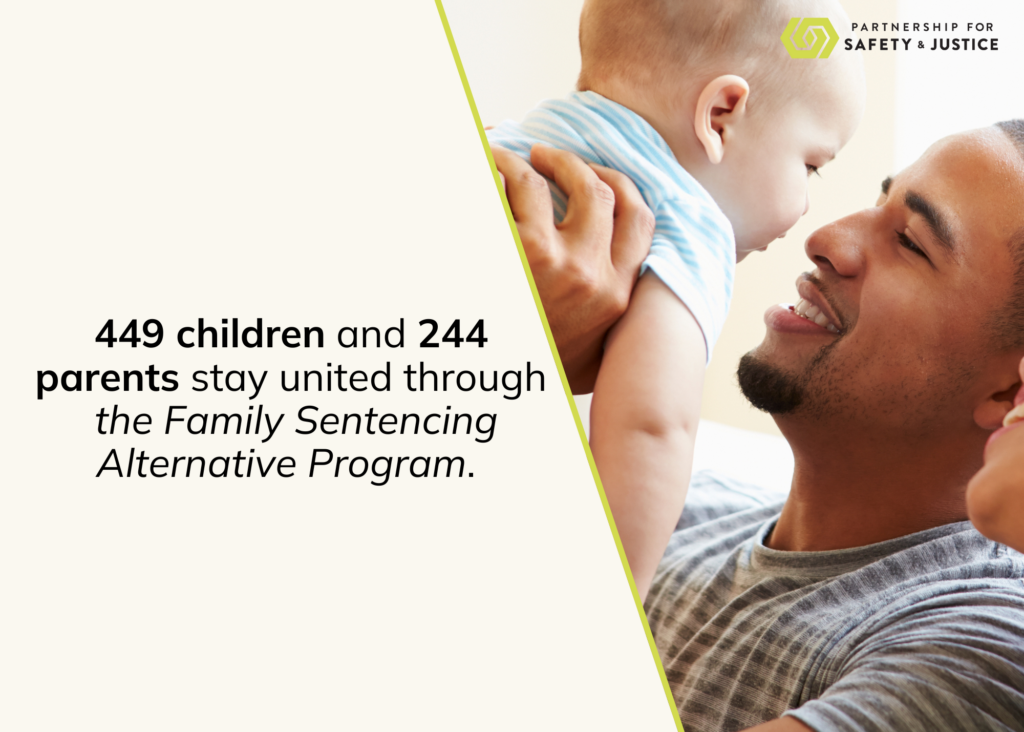Announcing our 2026 legislative priorities!
This session, we’re fighting to protect programs that help people heal, stay housed, and reunite with their families.

In 2015, Oregon became the second state in the country to launch a program that helps keep families together through local solutions to support primary caregivers and their children. Known as the Family Sentencing Alternative Program (FSAP), this prison diversion program allows parents to be accountable for harm while still raising their kids.
It’s been nearly ten years since the program launched. So, how is the Family Sentencing Alternative Program working to keep some parents with their kiddos?
One of my main roles at Partnership for Safety and Justice is to research how criminal justice reform policies are working and where they fall short. Here’s a peek into why we need FSAP, how it’s working, and what we’re finding:
Why keep families together?
Parents’ involvement is key to healthy child development. When kids have their parents in their lives, it lowers the risk that they will be involved in the system themselves. Plus, keeping families together makes it less likely that kids will stay in the foster care system.
What is the Family Sentencing Alternative Program?
Family Sentencing Alternative allows some parents of minor children to safely serve their sentence under supervision instead of going to prison. This way, parents can still raise their kids while also participating in accountability programs close to home. Programs include mental health and addiction treatment, life skills training, parenting classes, and employment support.
What are parents saying about FSAP?
The program is working incredibly well for some families! Here’s what some parents are saying about the Family Sentencing Alternative Program:


What do law enforcement officers like about FSAP?
This approach to accountability is more personal. It takes into account the individual parent as well as the whole family. It’s a significant shift from traditional supervision caseloads, where the culture is more punitive and adversarial. With FSAP, the parole officer’s relationship with parents is more supportive, similar to what people might see with social workers. They prioritize humanity, recovery, and restoration, not punishment.
What’s next?
It’s been almost 10 years since the Family Sentencing Alternative Pilot Program first launched in Oregon, and because of how the law was written, it will “sunset” or end unless it’s renewed by the legislature. That’s why it’s crucial to take a close look at FSAP now, so that advocates and lawmakers can make an informed decision about how FSAP can be improved to ensure that more kids can thrive, more parents can participate in meaningful accountability, and our communities are safer.
We’re working with our policy team, local and national partners as well as the Department of Community Corrections on some of these questions. As we head closer to the 2025 legislative session, we’ll continue to share more about the Family Sentencing Alternative Program and how advocates like you can get involved to build strong families and safe communities.